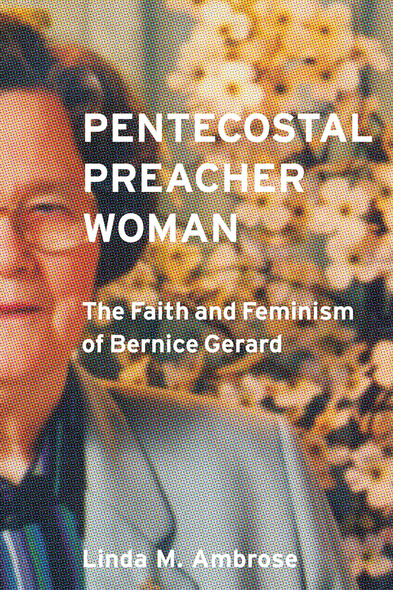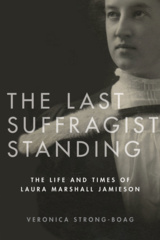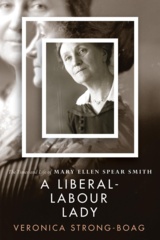
Evangelical pastor, talk-show host, university chaplain, municipal politician, musician. Pentecostal Preacher Woman explores the multifaceted life of the Reverend Bernice Gerard (1923–2008), one of the most influential spiritual figures of twentieth-century British Columbia, whose complicated blend of social conservatism and social compassion has lessons for our polarized times.
Gerard grew up in the provincial child welfare system and was briefly a teacher before entering the Christian ministry. Attracted to Pentecostalism’s emphasis on direct personal experience of God and the use of spiritual gifts, she became an evangelist and preached around the world. As a pastor, radio personality, and alderman, she was a compelling communicator for the Christian right and an ardent critic of liberal social mores. She was also a contradictory figure. Gerard aligned herself with individuals in the Social Credit party while supporting social justice causes that included the plight of refugees, Indigenous people, and Vancouver’s homeless population. She remained firmly rooted in patriarchal religious institutions but practised a kind of feminism and shared her life with a female partner.
Based on Reverend Gerard’s personal archives and life writing, Pentecostal Preacher Woman foregrounds her own voice to trace the complex evolution of a conservative woman’s ideas about faith and society.
This richly detailed biography illuminates larger themes for scholars and students of gender and women’s history, religious studies, and the history of British Columbia. It will also appeal to readers in Vancouver, across BC, and beyond, and is sure to spark lively discussion among those with knowledge of or curiosity about Pentecostalism.
Awards
- 2025, Shortlisted - 2025 Basil Stuart-Stubbs Book Prize
Pentecostal Preacher Woman makes sense of a woman that secular feminists and scholars regularly despised during her time, and largely ignored after it – and the book is a delight to read.
Linda M. Ambrose’s multifaceted portrayal of Bernice Gerard, a fascinating woman whose name will be unfamiliar to most, is a reminder that religion in British Columbia is more complicated than we assume. The twists and turns of Gerard’s story will spark a rich discussion among those whose complicated lives may find them grappling with their evolving faith.
Linda M. Ambrose is a professor of history at Laurentian University. She is the author of For Home and Country: The Centennial History of the Women’s Institutes in Ontario, A Great Rural Sisterhood: Madge Robertson Watt and the ACWW, and, with Michael Wilkinson, After the Revival: Pentecostalism and the Making of a Canadian Church. She also co-edited Women in Agriculture: Professionalizing Rural Life in North America and Europe, 1880–1965 with Joan M. Jensen.









